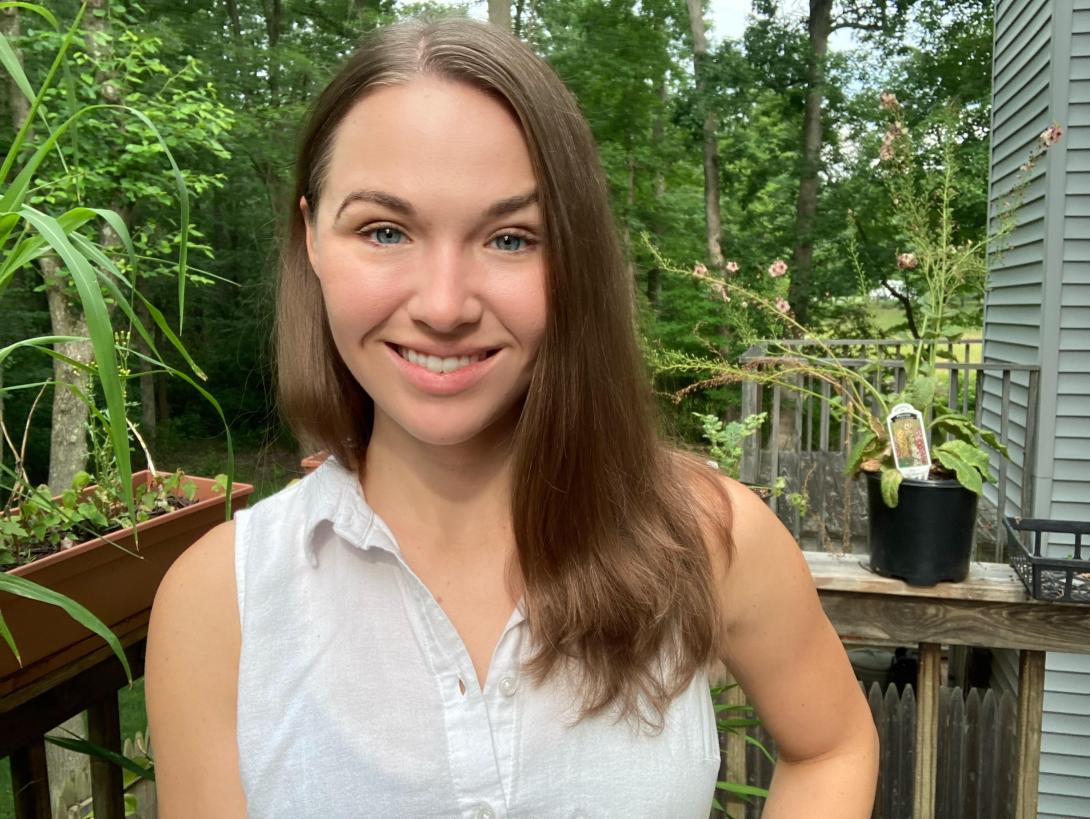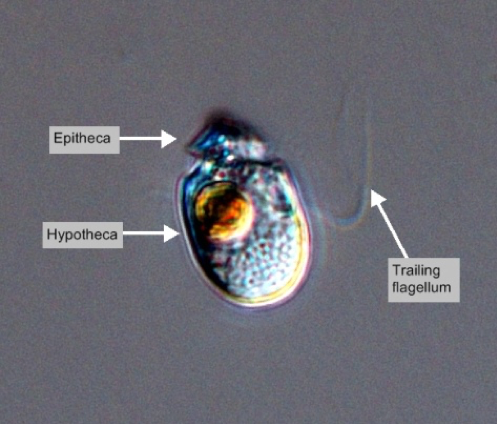Q&A with Miranda Judd, IMET GSA President

Miranda Judd is a Ph.D. student in the lab of Dr. Allen Place. She was recently elected to be the President of the IMET Graduate Student Association (GSA), so we sat down to ask her a few questions about her graduate research and her vision for the GSA in the coming year.
Why did you want to become the IMET GSA President?
I wanted to help support other graduate students during this difficult year. Throughout 2020, we faced many challenges, and I wanted to help communicate students’ needs in an impactful way this year. It can be difficult to navigate the program while it’s being held almost completely virtually, and I wanted to make sure students were getting all of the necessary information!
What do you hope to accomplish for the GSA this year?
I hope to maintain an open line of communication with students, even if the circumstances are tough. Due to the COVID-19 pandemic, we’ve seen a major transition from in-person learning to completely virtual. With this change comes new problems that I want to work out with the students and faculty. My goal is to make things more accessible to students, and still interactive, even if they are at home. I also want to be a part of the effort to slow-the-spread by keeping students informed on the current IMET guidelines. And in the future, hopefully I can aid in the transition back to normal once the community is vaccinated!

What are you researching?
I’m researching dinoflagellates, specifically toxin-producing species (Amphidinium carterae, pictured courtesey of Phytoplankton Encyclopaedia Project). Dinoflagellates are single-celled organisms that can be found in most bodies of water. Currently, my goal is to regulate dinoflagellate toxin production. The dinoflagellate genome can be extremely large and redundant, so finding elements to regulate can be difficult. We also believe that dinoflagellates regulate their genome differently from most known organisms – at the translational (protein) level instead of the transcriptional (RNA) level! Because of this, I am looking into regulating toxin-production at the translational level by targeting mRNA. Potentially by doing this, I can regulate which proteins are made (such as toxins).
How does it make a difference?
Toxin-producing dinoflagellates are one source of harmful algal blooms (HABs). HABs occur when the algae population grows very dense in the water, which can discolor the water and harm the surrounding environment. The toxins produced by HABs are known to kill fish, marine wildlife, and even harm humans. My goal is to find mechanisms to regulate toxin production in order to mitigate these blooms.
What got you interested in science?
I became interested in science in high school! Just on a whim I signed up for a Biotechnology career academy that was offered in my county. I was very surprised by how great the lab set-up was. We would do an experiment and write-up a lab report weekly on topics ranging from plant virology to transforming recombinant plasmids into E.coli. The three women who taught the course were phenomenal instructors as well. I was really inspired by the teachers and how knowledgeable they were. So I can say first-hand that representation makes a huge impact! Shout out to the Applications and Research Laboratory in Howard County!
Why did you choose IMET?
I chose IMET for multiple reasons. Firstly, the access to core facilities and amazing faculty. There are so many experienced people to learn from, and in many different fields. Also, the connection to Maryland and the Chesapeake Bay is important to me. I grew up in Maryland and have always had concern for the Bay. I’ve watched the areas I used to visit deteriorate over the years, and I wanted to be some part of a solution. What I’m working on is just one part of the issue, but I believe any bit helps. Lastly, I loved the idea of collaboration between different institutions. The faculty members here are affiliated with a variety of other campuses that allow for greater access to classes and facilities.